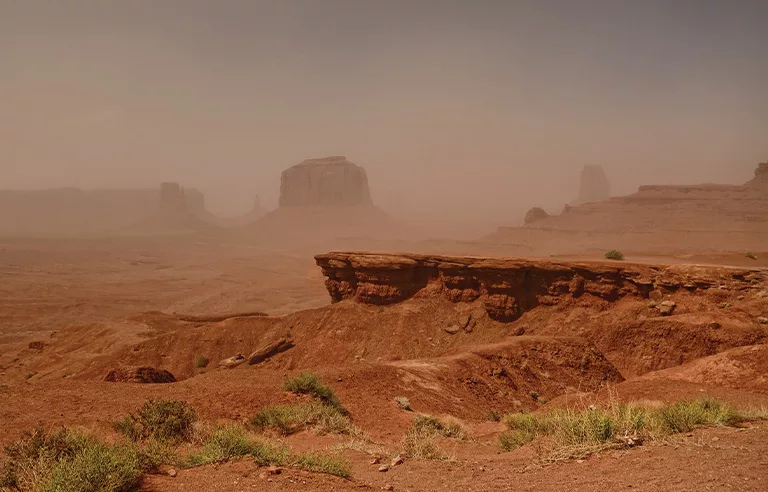
Photo: James Keith/gettyimages
Have you heard of valley fever?
It’s a respiratory condition caused from breathing in fungal spores. Symptoms of valley fever include fever, cough, shortness of breath, muscle soreness, joint pain and a spotted red rash on the lower legs.
“Workers in endemic areas exposed to dust from disturbed soil are at a higher risk for valley fever,” according to NIOSH. Industries affected include agriculture; construction; firefighting; and mining, oil and gas extraction.
NIOSH shares these tips to minimize exposure:
- Wear a NIOSH-approved respirator.
- Stop work during dust storms or high winds.
- Reduce time spent digging in soil by hand.
- Dig with equipment that has an enclosed, air-conditioned, HEPA-filtered cab.
- Continuously wet soil while digging.
- Stay upwind of digging when possible.
- Wash equipment before moving it to a new location.
- Change clothes and shoes at the jobsite to avoid tracking dust home.
Fungal Disease Awareness Week is Sept. 15–19. Go to cdc.gov/fungal/fungal-disease-awareness-week/index.html to learn more.
McCraren Compliance offers many opportunities in safety training to help circumvent accidents. Please take a moment to visit our calendar of classes to see what we can do to help your safety measures from training to consulting.
Original article published by Safety+Health an NSC publication


